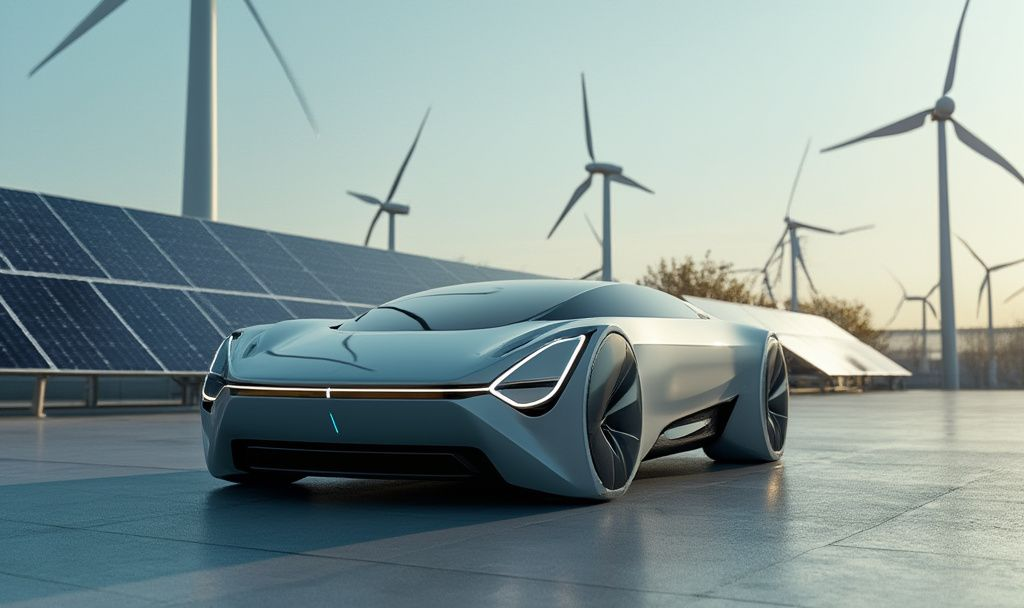Electric vehicles are more than just a passing trend; they represent a transformative shift in transportation. Beyond the hype, crucial advancements in technology and infrastructure are paving the way for a cleaner, more efficient future, making EVs an integral part of sustainable living.

Understanding the Real Future of Electric Vehicles
The future of electric vehicles (EVs) is a topic that sparks widespread interest and debate, as people seek to understand what lies beyond the media hype. It’s not just about flashy cars and sleek designs; real advancements in technology are shaping a new era for transportation. From battery improvements to changes in charging infrastructures, these developments aim to make electric vehicles more efficient, accessible, and sustainable.
Individuals interested in this field often want to know more about the realistic impacts and potential of electric vehicles. By moving past the marketing buzz, we can gain a deeper understanding of both the technological breakthroughs and the challenges that lie ahead. This article will explore key developments influencing the future of EVs and their significance in our lives.
Technological Advancements in Electric Vehicles
The evolution of electric vehicle technology plays a critical role in shaping their future. Improved battery technologies are leading the charge, enhancing both the range and efficiency of EVs. Innovations like solid-state batteries promise longer-lasting power and faster charging times. This is evident in the significant growth of electric vehicle sales, as highlighted by a Global EV Outlook, which reports over 4 million unit sales in early 2025.
Another area of focus is the charging infrastructure, which is becoming more widespread and quicker thanks to technological improvements. These changes further boost consumer confidence in electric vehicles, making them a more viable option for long-distance travel. Additionally, developments in semi-autonomous driving technology are enhancing safety and convenience, aligning with consumer expectations for future mobility.
The Human and Environmental Impacts of EVs
The rise of electric vehicles has significant implications for both the environment and society. By reducing greenhouse gas emissions and improving air quality, EVs offer a substantial benefit for environmental conservation. They provide an opportunity to lessen our reliance on fossil fuels, promoting a cleaner, more sustainable future.
On the social front, there’s an ongoing discussion about how this shift will affect jobs, particularly in traditional car manufacturing. While electric vehicles foster innovation and growth in new areas like battery production and infrastructure development, they may also require a workforce with different skills. Balancing these effects is crucial, as policymakers and industries work towards a seamless transition.
Economic and Industry Dynamics
The automotive and energy sectors are evolving in response to the growing presence of electric vehicles. There is a noticeable increase in investments aimed at advancing charging technology and improving battery manufacturing processes. Electric vehicles are not just altering the landscape of transportation but also influencing economic policies and enriching the energy sector with more sustainable practices.
Governments are developing frameworks to support this transition, focusing on infrastructure development and sustainability. As the demand for EVs rises, countries are crafting regulations to ensure equitable access to electric cars and promote eco-friendly advancements. Incentives such as tax benefits and investments in public charging stations are crucial for further fostering this shift.
Ethical and Cultural Considerations
As the push toward electric vehicles intensifies, there are important ethical and cultural elements to consider. Issues such as the sourcing of raw materials for batteries and disposing of EV components pose ecological challenges and ethical questions. Addressing these concerns demands robust policies promoting recycling and reducing waste.
Electric vehicles are becoming a household name, influencing cultural perceptions and consumer habits. The cultural significance is strengthened by the narrative around sustainable development and environmental responsibility. This image is crucial in persuading more people to consider adopting EVs, reflecting a shift in societal values toward greener, more sustainable living. For more insights into future innovations, you may explore resources like Viva Technology, which discusses cutting-edge advancements in the EV sector.
In conclusion, the future of electric vehicles is not just about meeting consumer needs with advanced technology, but also involves economic, environmental, and social dimensions. By understanding these various aspects, we can foster a more informed conversation about the exciting and challenging future that lies ahead for EVs.
Frequently Asked Questions (FAQs)
What are the key technological advancements in electric vehicles?
Technological advancements in electric vehicles include improved battery technologies, such as solid-state batteries, which offer longer-lasting power and faster charging, and advancements in charging infrastructure to support widespread use and long-distance travel.
How do electric vehicles impact the environment?
Electric vehicles help reduce greenhouse gas emissions and improve air quality, offering significant environmental benefits by reducing reliance on fossil fuels.
Why is the charging infrastructure important for electric vehicles?
Charging infrastructure is crucial because it boosts consumer confidence by making EVs more practical for long-distance travel and everyday use, thanks to more widespread and quicker charging options.
How do electric vehicles affect job markets in the automotive industry?
The shift to electric vehicles may impact jobs in traditional car manufacturing while creating opportunities in areas such as battery production and charging infrastructure, necessitating workforce reskilling efforts.
What ethical issues are associated with electric vehicles?
Ethical issues in electric vehicles involve the sourcing of raw materials for batteries and the disposal of EV components, highlighting the need for sustainable practices like recycling to address ecological challenges.
